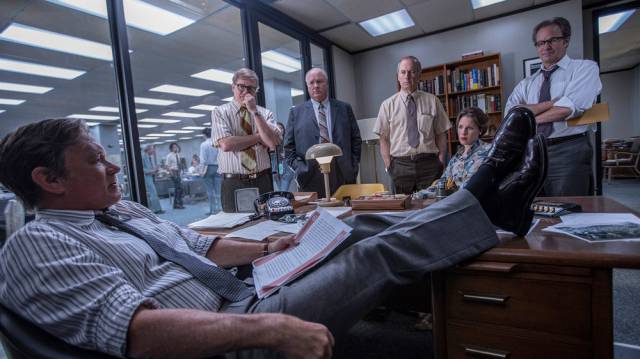At the point when an arranged government learn about the Vietnam war is spilled to the press, Washington Post proprietor Kay Graham (Meryl Streep) and manager Ben Bradlee (Tom Hanks) are quick to distribute confessions. Remaining in their direction? Just the US government.
The Washington Post and the US government have past. Broadly. It is, all things considered, the paper that cut down an administration — its months-long examination concerning a break-in at the Watergate Hotel driving Nixon into an impossible to win 'leave or be impugned' dilemma. (He surrendered.) But that is by all account not the only run-in it's had — before Watergate, there were the 'Pentagon Papers'.
To begin with, the history lesson: charged by JFK and LBJ's Secretary Of Defense Robert McNamara, the Papers were a 7,000-page give an account of the United States' inclusion in Vietnam in the vicinity of 1945 and 1967. The essential finding being the legislature knew they couldn't win, however continued sending troops as opposed to concede vanquish. With the war asserting almost 60,000 American lives, that disclosure was an entirely major ordeal. Also, when the papers got hold of the archives, they needed to distribute stories. Nixon's administration, obviously, was less sharp.
The Post (retitled 'The Papers' amid generation, however since renamed back) is the narrative of The Washington Post's part in providing details regarding the spilled ponder, with specific accentuation on the parts of proprietor and distributer Kay Graham (Meryl Streep) and official editorial manager Ben Bradlee (Tom Hanks). She's endeavoring to secure the paper's future by propelling on the stock trade, so needs to keep the financiers upbeat. He's a news fellow — he trusts it's his obligation to distribute, regardless of whether it implies imprison time.

The forward and backward between these two acting heavyweights, and the nuances of their varying positions as they grapple with the greatness of their choice, is the place the film wakes up. It's Streep who gets more with which to work. Graham was the United States' first female daily paper distributer, an occupation she hadn't requested, however one she was arrived with after her better half's passing abandoned her responsible for the privately-run company. What's more, she's regularly lost in a male-commanded world that gives her little regard: talked over in gatherings, tormented by everyone around her, yet endeavoring to make the best decision — by the paper, the American open, and by her companions. One of whom happens to be one of the men in the terminating line — Robert McNamara (Bruce Greenwood). It's simply she's not clear precisely what the correct activity is. What great is distributing if the paper loses subsidizing and goes under? Will the story put American troops in peril? Be that as it may, shouldn't something be said about considering the administration responsible for its duplicity?
We have been here before, of course. In many ways — not least actually in the Post’s newsroom for All The President’s Men (Bradlee then played by Jason Robards). And so much of it plays out as you’d expect — with news conferences, phone calls to sources and sudden breaks in the story that come at just the right moment to propel the plot forward. It’s in comparison with similar films that The Post suffers. It has a decent story, Hanks and Streep are two compelling leads, and Spielberg is laughably over-qualified to direct it, but it’s neither as thrilling as All The President’s Men, nor does it have the emotional heft of Spotlight. But there’s no shame coming second best to those two titans of the genre. On its own considerable merits, The Post is first class.
Set nearly half a century ago, however surprisingly perceptive in these "fake news" times, The Post is a connecting with and unbelievably acted story beyond any doubt to be in the running come the Oscars.